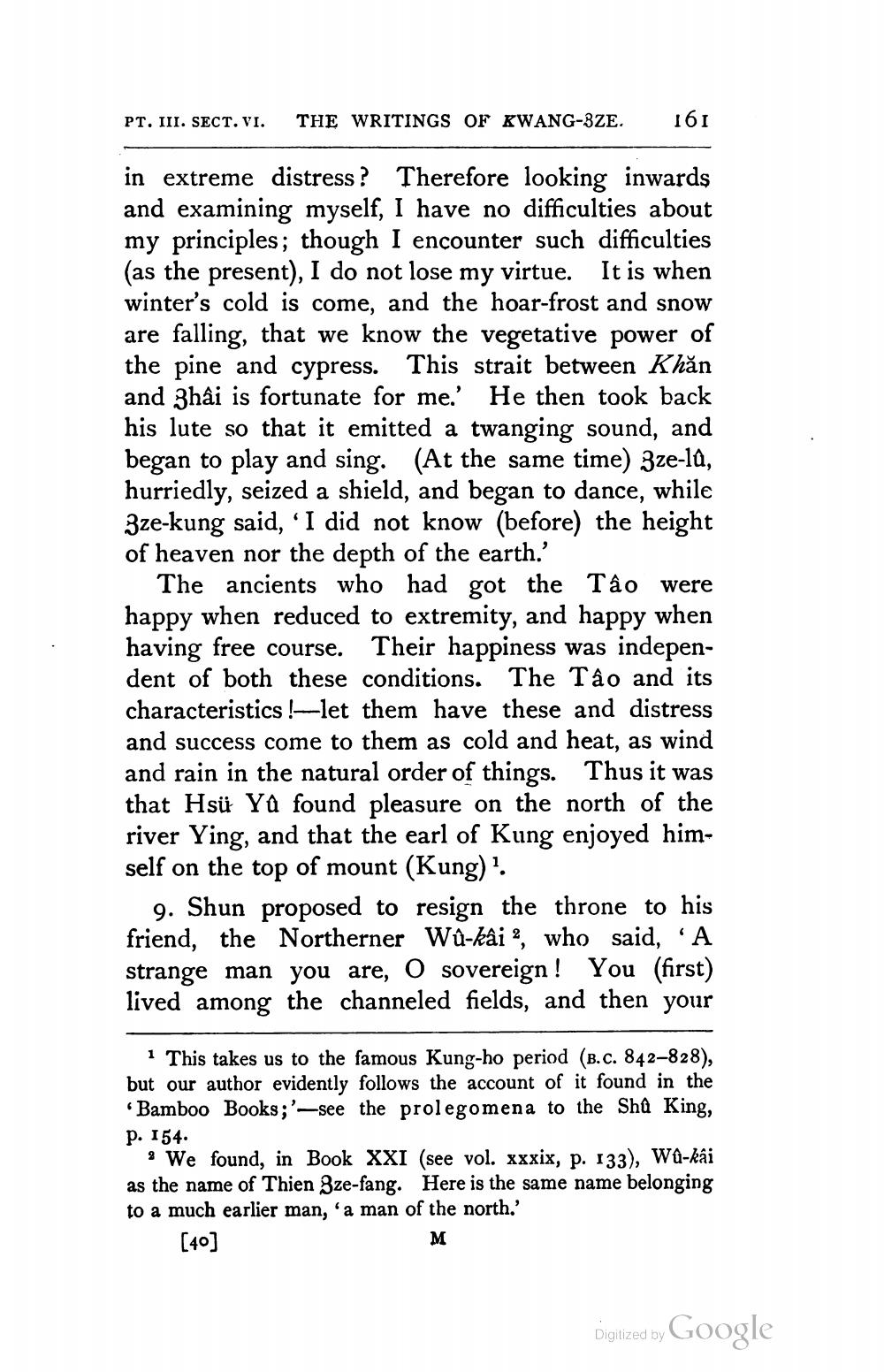________________
PT. III. SECT. VI. THE WRITINGS OF KWANG-3ZE. 161
in extreme distress? Therefore looking inwards and examining myself, I have no difficulties about my principles; though I encounter such difficulties (as the present), I do not lose my virtue. It is when winter's cold is come, and the hoar-frost and snow are falling, that we know the vegetative power of the pine and cypress. This strait between Khăn and 3hâi is fortunate for me.' He then took back his lute so that it emitted a twanging sound, and began to play and sing. (At the same time) 3ze-lû, hurriedly, seized a shield, and began to dance, while 3ze-kung said, 'I did not know (before) the height of heaven nor the depth of the earth.'
The ancients who had got the Tâo were happy when reduced to extremity, and happy when having free course. Their happiness was independent of both these conditions. The Tâo and its characteristics!-let them have these and distress and success come to them as cold and heat, as wind and rain in the natural order of things. Thus it was that Hsü Yu found pleasure on the north of the river Ying, and that the earl of Kung enjoyed himself on the top of mount (Kung)1.
9. Shun proposed to resign the throne to his friend, the Northerner Wû-kâi 2, who said, 'A strange man you are, O sovereign! You (first) lived among the channeled fields, and then your
1 This takes us to the famous Kung-ho period (B. c. 842-828), but our author evidently follows the account of it found in the 'Bamboo Books;'-see the prolegomena to the Shû King, P. 154.
We found, in Book XXI (see vol. xxxix, p. 133), Wû-kâi as the name of Thien 3ze-fang. Here is the same name belonging to a much earlier man, 'a man of the north.'
[40]
M
Digitized by Google




